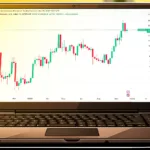The regulators’ meeting focused on the complete execution of core principles through a series of interconnected reports. On December 19, the International Organisation of Securities Commissions (IOSCO) announced nine policy suggestions aimed at promoting greater uniformity in regulatory monitoring both within and between jurisdictions. While the recommendations, which derive from a process started with a study released the previous year, are hardly new (as evidenced by Rule 7’s basic “enforce applicable laws”), their relevance resides in the detailed and comprehensive treatment offered for each recommendation.

The guideline that comes with Rule 7 presents a variety of strategies that a participant in decentralized finance (DeFi) or other markets could use to avoid regulation. It advises that regulators assess whether they have the necessary powers, tools, and resources to deal with such methods and presents a list of relevant tools to explore.

According to the paper, IOSCO‘s goal is to promote consistency in the regulation of both crypto-asset markets and securities markets, focusing on the premise of same activity, same risk, same regulation/regulatory consequence.’
The DeFi proposals complement a November series of crypto and digital asset recommendations. The organization also gave guidelines on how to apply these two sets of recommendations concurrently, depending on the degree of decentralization of the regulated body. Concerning Recommendation 2, which is concerned with “identifying responsible persons,” the report states:
“Some industry participants have asserted that if something is decentralized, it is not, or cannot be, regulated. […] However, regardless of a governance structure or how ‘decentralized’ the decision-making is, there is usually a Responsible Person(s) that controls, or sufficiently influences, the offer of products, provision of services, or engagement in activities.”
After completing the process of developing its recommendations, IOSCO is prepared to shift its attention to a more all-encompassing strategy that includes regulatory capacity building, monitoring, and technical help to its large membership. With more than 130 authorities as members, IOSCO can supervise and control a staggering 95% of the global financial markets.













































































































